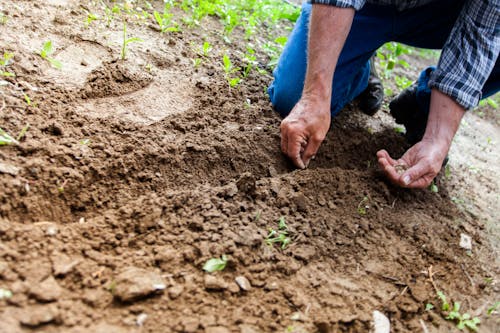Gardening is much more than just planting flowers or growing vegetables. It’s an activity that can significantly contribute to mental health and well-being. Whether you have a sprawling garden or a small balcony garden, the act of nurturing plants and spending time outdoors has profound benefits for your mind and body. Over the years, studies have shown that gardening can reduce stress, enhance mood, and provide a sense of accomplishment, all of which are crucial for maintaining mental health. If you’ve never considered gardening as a way to boost your well-being, it might be time to give it a try.
Gardening as a Stress Reliever
One of the most immediate mental health benefits of gardening is its ability to reduce stress. In today’s fast-paced world, stress is an inevitable part of life, but gardening offers a way to take a break from the hustle and bustle. Tending to plants and spending time in nature can be incredibly soothing, allowing your mind to slow down and focus on something peaceful. The repetitive tasks of watering, pruning, and weeding can be meditative, helping to clear your mind and shift your focus away from worries or anxious thoughts.
Additionally, studies have shown that spending time in green spaces, even in urban areas, can significantly lower levels of cortisol, the hormone associated with stress. Gardening, as a form of nature therapy, provides a natural way to calm the nervous system and create a peaceful environment in which to relax.

Improved Mood and Emotional Well-Being
Gardening can also help improve mood and emotional well-being. The simple act of planting something and watching it grow can bring about feelings of happiness and accomplishment. For many, this is an empowering experience that fosters a sense of purpose and connection to nature. Moreover, tending to plants can create a sense of responsibility and routine, which can provide structure and stability in your day-to-day life.
The physical activity involved in gardening also plays a role in enhancing mood. Exercise releases endorphins, the body’s natural feel-good chemicals, which can help alleviate symptoms of depression and anxiety. Whether you’re digging in the soil, planting seeds, or simply strolling through your garden, gardening can give you a natural boost in your overall emotional state.
A Connection to Nature and the Outdoors
For those living in busy cities or hectic environments, gardening provides an opportunity to reconnect with nature. Spending time outdoors and being surrounded by plants and greenery can help foster a sense of calm and mindfulness. Nature has long been recognized for its positive effects on mental health, and gardening gives you an active role in caring for and interacting with your surroundings.
Being outdoors and breathing in fresh air can help lower blood pressure and improve overall cardiovascular health. These physical benefits, in turn, contribute to a more relaxed and centered state of mind. Gardening also helps to create a space where you can disconnect from technology and digital distractions, allowing you to be more present in the moment.
A Sense of Accomplishment
Gardening offers a tangible sense of accomplishment. Unlike some activities that may feel overwhelming or difficult to complete, gardening allows you to see the fruits of your labor in real-time. Watching a seed sprout and grow into a thriving plant provides a sense of pride and satisfaction, which can boost self-esteem. Whether you’re growing a vegetable garden or tending to decorative flowers, the success of your plants can bring joy and fulfillment.
This sense of achievement is especially valuable for individuals experiencing mental health challenges such as anxiety or depression, where feelings of inadequacy or lack of motivation can be overwhelming. Gardening provides a way to set manageable tasks and see immediate results, which can improve confidence and foster a positive outlook.
Gardening and Social Connections
In addition to the personal benefits of gardening, it can also foster social connections. Community gardens, gardening clubs, and even shared spaces with neighbors offer an opportunity to meet others and build relationships. Gardening can be a social activity, where people can come together, share tips, and bond over a shared love of plants. This sense of community can provide emotional support and combat feelings of isolation or loneliness.
For those who may not have a garden of their own, volunteering at local gardens or participating in gardening events can be a great way to connect with others and give back to the community. These social interactions are vital for mental health, as they provide opportunities for meaningful connections and positive reinforcement.
Mindfulness and Meditation Through Gardening
Gardening also encourages mindfulness and meditation, which are powerful tools for improving mental health. When you focus on the simple tasks of gardening—like planting, pruning, or watering—you engage in a form of mindfulness that helps to calm the mind and bring attention to the present moment. This can be especially helpful for individuals who struggle with racing thoughts or who find it difficult to relax.

Mindfulness-based practices have been shown to reduce stress, anxiety, and depression by promoting a non-judgmental awareness of thoughts and feelings. Gardening, in this sense, can act as a form of moving meditation, where you connect deeply with nature and your own inner peace.
Gardening for Long-Term Mental Health Benefits
In the long term, gardening can have lasting positive effects on mental health. As a regular hobby, gardening encourages a balanced lifestyle that prioritizes physical activity, connection to nature, and personal growth. It provides an outlet for creativity, as gardeners can experiment with different plants, layouts, and designs to create a space that reflects their personality and style.
The benefits of gardening are also cumulative. The more you invest time and energy into your garden, the more you reap the rewards of improved mood, reduced stress, and a deeper connection to nature. Over time, gardening becomes a healthy routine that promotes overall well-being and provides a sense of continuity and purpose.
Conclusion
Gardening offers more than just the beauty of flowers or the satisfaction of home-grown vegetables. It has the potential to improve mental health, reduce stress, and enhance well-being. Whether you’re looking for a way to relax, a hobby to boost your mood, or a method to cultivate a sense of accomplishment, gardening provides a powerful tool for improving both mental and physical health. In a world that often feels chaotic, taking the time to nurture plants and spend time in nature can bring peace, happiness, and a sense of balance to your life.













